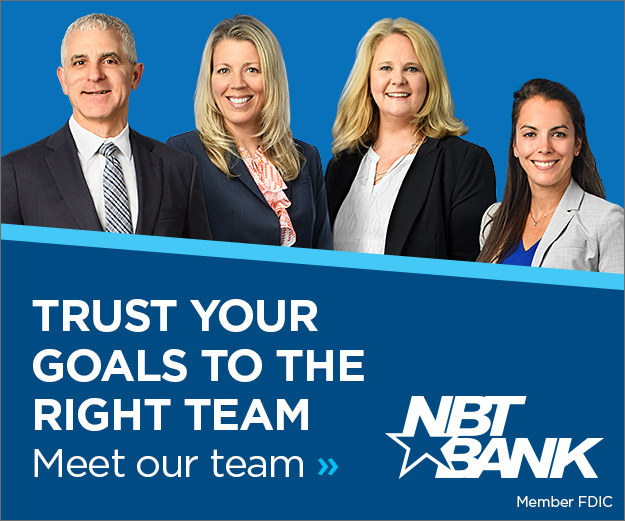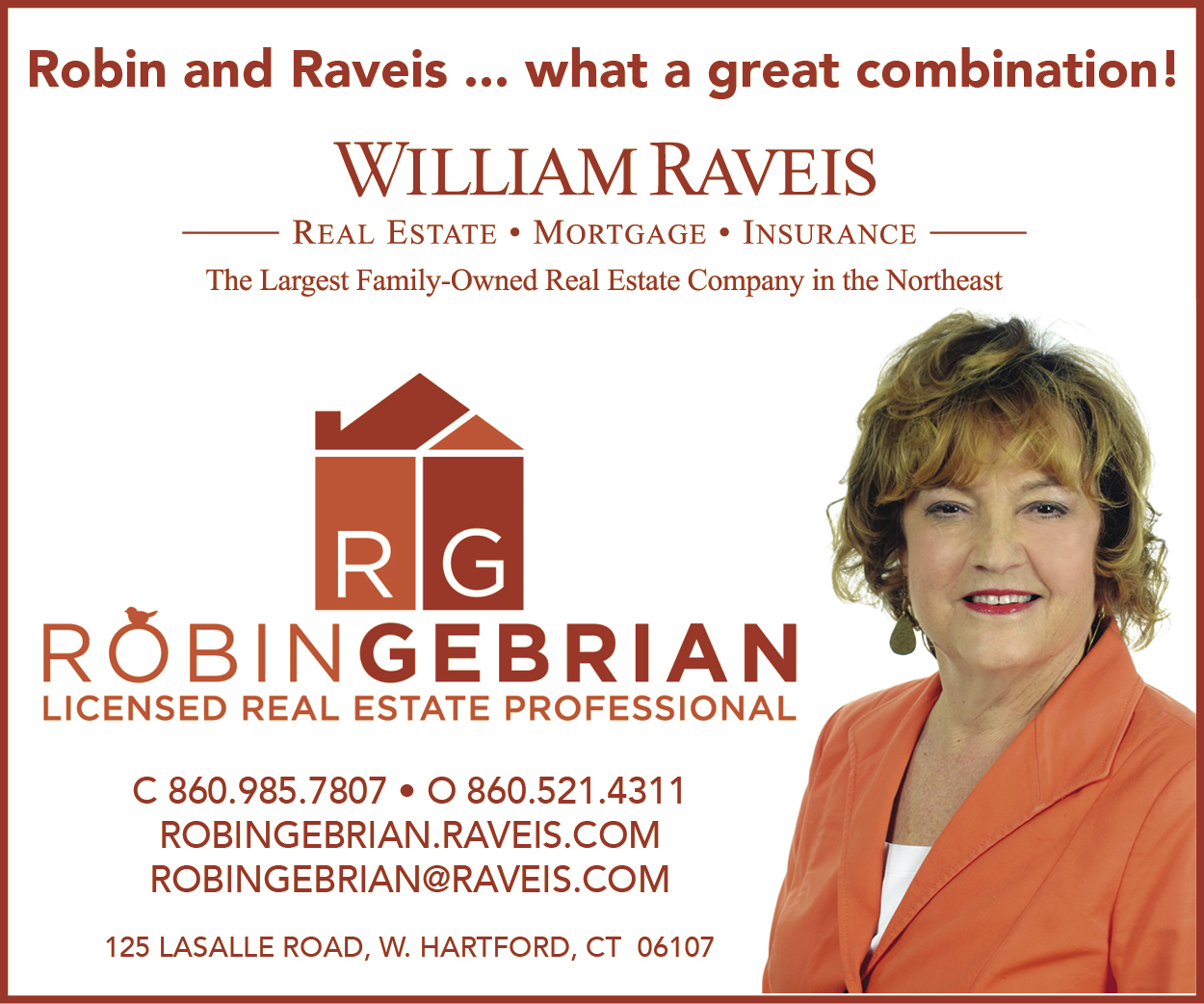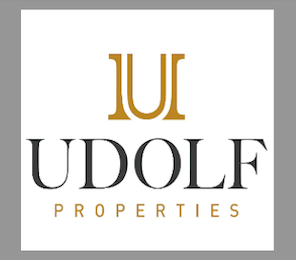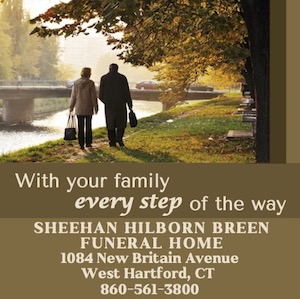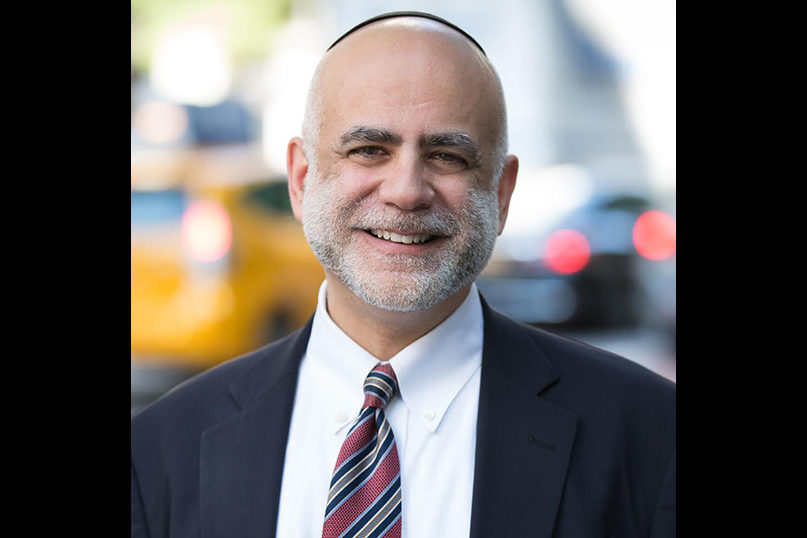
The new head of Hartford’s Jewish Federation talks about the challenges ahead
By Judie Jacobson
WEST HARTFORD – On July 1, David Waren came home. That is, the West Hartford native returned to the town where he grew up and where much of his family still lives to take the reins as the next president and CEO of the Jewish Federation of Greater Hartford. He succeeds Howard Sovronsky, who retired in June.
Prior to joining the Jewish Federation, Waren worked with the Anti-Defamation League for the past 24 years, most recently as vice president of regional operations and advancement. Prior to that he served as director of ADL’s Education Division and as a regional director in St. Louis and Connecticut.
Prior to joining ADL, he served as an attorney with Tarlow, Levy & Droney, PC in Farmington and Chorches & Novack, PC in Wethersfield.
“David brings more than 20 years of experience in the Jewish communal world, dealing with some of the toughest issues that face the Jewish people,” said Carolyn Gitlin, who is now Federation chair and served, at the time of Waren’s hiring, as first vice chair of the Federation Board and co-chair of the Search Committee.
Waren holds a B.A. in politics from Brandeis University and a J.D. from University of Connecticut School of Law. He also studied at Hebrew University’s Rothberg International School and at Pardes Institute of Jewish Studies, both in Jerusalem.
Recently, the Ledger sat down with David Waren to talk about the challenges Federation faces, and the solutions he hopes to bring.
Jewish Ledger (JL): You’re coming at a time when Jewish communities all across the country are on high alert and tense because of the spate of antisemitic attacks in our synagogues, schools and agencies. Is this something you have on your agenda to deal as Federation head?
David Waren (DW): Absolutely. What we are seeing in the last few years is a significant rise in antisemitic incidents in public and private schools. There has been a doubling of the numbers of antisemitic incidents targeting youth. And we are seeing it all over the country, including schools in this region. I anticipate that Federation will be supporting programs to specifically help Jewish students address this issue and will be working in a variety of ways to combat antisemitic incidents and attitudes.
Elie Wiesel said that the 50 years after the Holocaust were an aberration in history in that antisemitism was taboo. He said we’ve now reverted to the traditional course of Jewish history, where it’s blatant – and it’s only getting worse.
JL: Is Federation taking a lead role in protecting our schools, shuls, etc.?
DW: Over the last few months, Federation has convened a security task force to map out community security needs and how Federation and federated agencies will address them. It’s in the early phases but we will be moving forward rapidly. It started with a concerted effort by JFNA (Jewish Federations of North America) through the Secure Communities Network to protect our institutions and community members. The challenges around security are very real, and we have to address them in a collective fashion. In many communities that has meant additional personnel and a whole fabric of training and site security and protocol. Those are all clearly emergent needs that Federation is discussing.
JL: Your presence in Hartford is a ‘coming home’ – you grew up here and worked for so many years as head of ADL Connecticut. What made you want to come back?
DW: I spoke on behalf of ADL at the vigil following the shooting in Pittsburgh. Afterward, I saw Laura Zimmerman [Federation’s VP of Planning and Community Impact], with whom I had worked for many years. She was the one who initially encouraged me to apply for the position, and the more I thought about it, the more enthusiastic I became.
You could argue that we are at a turning point in American Jewish communal life. We face rising assimilation, and antisemitism is increasing on both ends of the political spectrum at levels we haven’t seen since World War II.
Then there is the issue of polarization and conflict with the Jewish community itself, also at levels we really haven’t experienced before and partly fueled by broader trends in our society.
Federation has always been and particularly now can be a leader in addressing all of these issues.
Of course, added to that are the ongoing social service needs in our Jewish community. We have a rich fabric of social service agencies, many of which receive vital funding from Federation, and we will continue to address current and emerging needs. And then Federation also serves in its classic planning role… to look across the landscape and move forward strategically to identify and address needs and resources across the community.
JL: Will your experience working at the top levels of ADL help you in your new role?
DW: The core mission of Federation not only excites me, it also aligns with the work that I’ve done over many years in public policy at ADL. Of course, some of the issues are different, but there is a strong overlap. Both my avocational interests and my experience, skills and deep knowledge of the Jewish community, make this a great fit for me. I have extensive experience with and a love for fundraising, leadership development, marketing, PR – the full gamut of non-profit work and skills.
In addition, for me this is really coming back home. I grew up in Greater Hartford – it’s where my family is – and I worked in this community on behalf of ADL for a decade. I know many of the leaders and I know many of the broader community representatives.
And, truly, this is a great staff. I’m standing on the shoulders of past great leaders, including [my immediate predecessor] Howard Sovronsky. So I’m not coming into a turnaround situation; I’m building on a really strong foundation.
JL: What is your first order of business as Federation head?
DW: I’m on a listening tour now. I’m trying to walk humbly and learn about community needs from various vantage points, and learn about the operational facets of the work here, before putting down markers of suggested change. In so doing, I’m reconnecting with a lot of old friends and meeting a lot of terrific new people – one of whom is Carolyn Gitlin, who led the search process and is the incoming Federation Board Chair. I did not know Carolyn before and she’s a terrific and very capable leader.
JL: In terms of fundraising… do you find that the younger generation has the same affinity for ‘giving’ that the older generation has and had?
DW: Mid-size Jewish communities are being challenged all across the country. The demographer Ira Sheskin has done a lot of work in this community and [his work reveals that] our age demographics skew slightly older than other communities. Some of the larger communities are growing; many of the mid-size communities are not. In fact they are shrinking rapidly.
Hartford is relatively stable. There might be a slight diminution in Jewish population, but this is a community that is vibrant and vital, and many of the children and grandchildren of families who have been pillars of philanthropic and volunteer engagement in this community are back.
Of course, engaging with Millennials and generations X and Z is different from engaging with Baby Boomers. Philanthropically, it’s a much more hands-on approach that is often imbued with a strong sense of social justice. And we’re working diligently and creatively to engage those demographics. One of the innovative programs that Federation is launching this year, with funding from the Grinspoon Foundation, is to help synagogues and community institutions launch 10 new havurot (small, close-knit Jewish groups). We are meeting people where they are – based on their age, interests and geographic proximity – to help them create their own unique Jewish journey.
We also need to find ways to help community institutions contribute to people’s Jewish Jewish journeys. We want to expand opportunities for Jewish fulfillment and meaning – not just religiously but also culturally and socially.
JL: Hartford’s day schools are struggling. How can we best address that issue?
DW: This is a very rich and vibrant community and there are actually signs – really hopeful signs – of potential growth. Some of the synagogues are experiencing growth in membership. There have been changes at Solomon Schechter Day School, including a whole new approach to curriculum, that are beginning to bear fruit. And then there is the merger this year between the Bess & Paul Sigel Hebrew Academy and the Hebrew High School of New England that created the New England Jewish High School in addition to the gift from Ann and Jeremy Pava which will supplement tuition that has the potential [to increase enrollment].
Still, the challenge in part – and this is where Federation comes in – is marketing. We know that tuition alone doesn’t necessarily yield higher matriculation rates. A robust marketing effort is vitally necessary. We need a coordinated effort to lift up the Greater Hartford Jewish community and encourage people to move here, making them aware of the vibrancy and vitality of this community and the richness of Jewish life here.
Clearly, Federation is committed to Jewish education; a significant portion – roughly 25 percent of our allocable dollars – go to the day schools. The innovations I’ve described bode well for growth, but we must work across all of our institutions – synagogues and schools and other agencies – to help create an influx into Hartford.
JL: What do you see as the main challenges you will face?
DW: I think for Federation the challenges are both internal and external. In 1948, this Federation raised $1.35 million; in today’s dollars that would be over $14 million – a lot of it in a special campaign for Israel during the War for Independence. So, there is a deep philanthropic tradition anchored around many of our community’s leading families and philanthropists. Federation has traditionally played a meaningful role in supporting institutions, in deepening engagement, in planning and in engaging as a leading Jewish voice in the broader community.
Many federated communities, particularly west of the Mississippi, are struggling; even Federations with wealthy Jewish communities are feeling the pinch. Part of the reason is a lack of a historical Federation tradition in those communities.
Locally, our Federation is building on a deep tradition. We have a well-understood role. But I would argue – and this goes to one of our challenges – that we’re still not telling the story well. So if you ask me, one of our challenges, is better highlighting the critical work of Federation. We’re going to have a strong focus on comprehensive branding and marketing to ensure that the role of Federation is well understood.
Increasingly, Federations face demographic challenges, including assimilation and the need to reach out to the interfaith community, the unaffiliated and the under-engaged. Part of our role is to assist our local Jewish institutions in their own efforts to draw in and connect Jews and to work collaboratively with each other.
JL: Bringing the various Jewish organizations together sounds like a tall order.
DW: There is growing polarization within our community. Over the last couple of years, Federation launched a series of events to foster civil dialogue and help ameliorate some of those divisions. That’s going to be an ongoing challenge and an ongoing priority for us: fostering an awareness that as Jews we are, more often than not, grounded in similar values – even if those values manifest in different perspectives and policies.
JL: Time was the Jewish community spoke was of one united mind when it came to the State of Israel. But times have changed. What is Federation’s role here?
DW: First of all, yes, there is a splintering of the community when it comes to Israel.
However, in my experience, there is broad consensus about core principles of support for Israel. There is a broad consensus about the importance of maintaining the democratic and pluralistic values of the state and about the security challenges facing the state. There are differences of opinion, and there have been for many years, about some facets of Israel’s democracy and the manifestation of pluralism. And there are challenges within Israel, as there are in many societies, particularly about issues relating to religious diversity.
Israel is not a perfect society. Reasonable minds can differ about how Israel handles its challenges, including the nature of external threats and the issue of the West Bank.
It is important for Federation to find ways to manifest support around those core principles – around Israel’s security, its pluralism, its Jewish and democratic nature – and find ways to galvanize support for Israel in the broader community.








 Southern New England Jewish Ledger
Southern New England Jewish Ledger


